500,000 Msians suffer from an incurable disease. Bleeding isn’t the worst part…
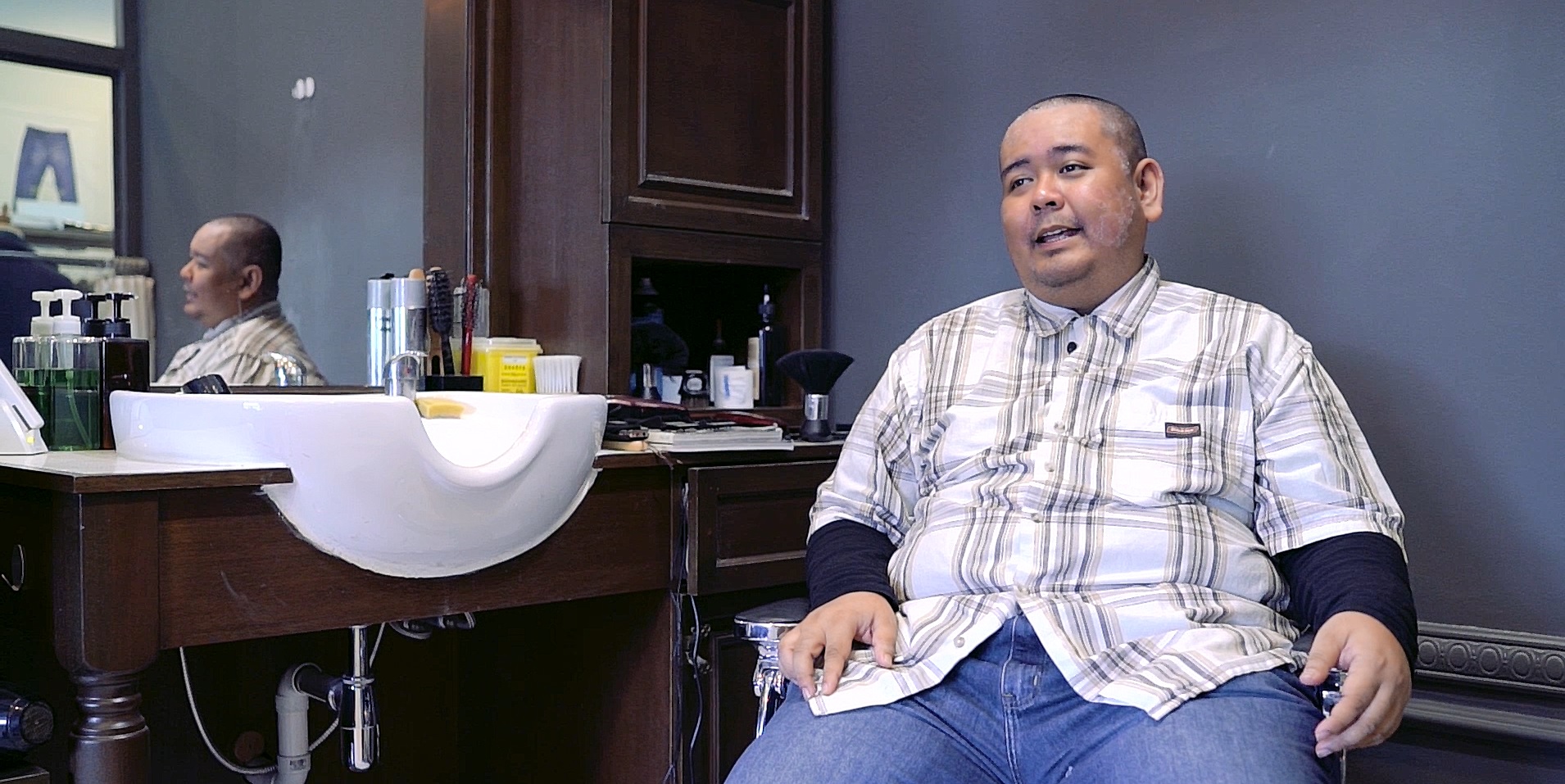
- 8.6KShares
- Facebook8.4K
- Twitter17
- LinkedIn23
- Email32
- WhatsApp107
Imagine going to a doctor for a skin problem, then being told there’s no cure and that you’ll just have to live with it for the rest of your life.
For people suffering from this disease, that’s exactly the case. Psoriasis (pronounced so-rye-uh-sis) is an auto-immune disease which basically causes the skin cells to grow super fast. This results in dead skin that can cause itching and burning for the person suffering it. Over 125 million people around the world have the disease, including celebrities such as Kim Kardashian and Cara Delevigne. Although there has not been an exact Malaysian study done, there are over an estimated 500,000 sufferers in the country.
Despite these big numbers, the condition is NOT contagious – you can’t get it from touching someone, although you can inherit it in your genes 🙁 But while this condition is for life, latest treatments have shown promising improvements in patients as this video shows…
In conjunction with the #Ask4Clear campaign by Novartis Malaysia, we met up with three Malaysians who’ve been diagnosed with it to tell us more about what living with the disease is like:
- Raja – Events photographer;
- Lex Low – Owner and founder of a barbershop; and
- Chan Woei Hern – Creative Director of a media agency.
Although these champs have done well for themselves, they know well enough that others aren’t so lucky. They shared everything from how they felt when they were first diagnosed and how it affected their dating lives to the treatments available nowadays and how they deal with the disease. Here’s what we learned.
Finding out they had psoriasis was devastating, but also … a relief?
“Since I was 12, I thought it was dandruff. I tried all types of shampoo but none of them worked, which made me wonder what was wrong with me. But then when I went to the doctors in university, they said, “That’s not dandruff. That’s psoriasis“. There was relief because I finally knew what the “enemy” was, but I also dreaded that there was no cure.” – Raja
For Raja, being diagnosed with psoriasis was almost a double-edged sword. Although the disease is generally not life-threatening, it can have a severe impact on the lives of those that have it. Among other things, psoriasis patients have been linked with having increased risks of heart attacks and strokes, cancer, type 2 diabetes, Crohn’s Disease, and kidney and liver problems.

More than that, a global survey conducted on psoriasis patients discovered that 38% were diagnosed with psychological conditions as a result of their disease, while 25% had been diagnosed with anxiety and depression. For Lex Low, it came as a rude surprise.
“At that time, psoriasis was entirely foreign to me. So for the first two years after I found out, it was all about researching everything about the disease and trying out all the different medications. It came to the point where I became so tired of searching for a cure, that I just gave up.” – Lex
Because psoriasis is mainly thought to be a genetic disorder, there is little evidence that diet has any major impact on the disease. However, this hasn’t stopped all sorts of advice coming from well-meaning friends and family.
A lot of people just want to help… although sometimes, a bit too much 🙂
“The doctors told me that my diet wouldn’t affect my condition by a lot. Still, my family were the ones who kept advising me about what to eat or telling me I shouldn’t have seafood, white meat, beef, or whatever else. In the name of keeping things civil, I just nod and smile.” – Raja
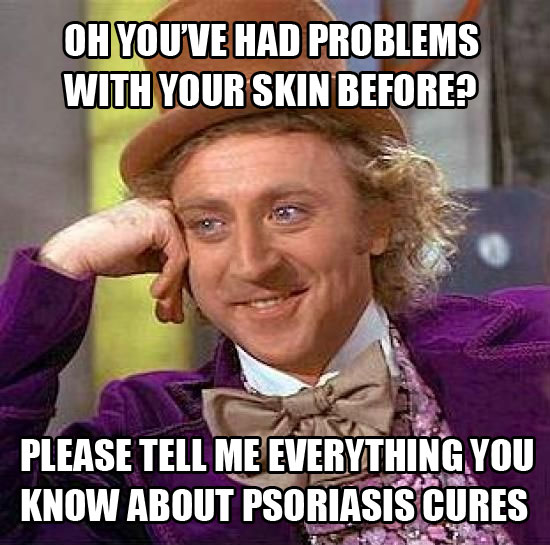
While it was mostly family telling Raja what he could eat or not, most of the tips Woei Hern received tended to come from his friends and colleagues instead.
“People will go, “Ey, you got this ah? Ey, you got that ah? Ey, last time I got this ah, you try this one product la“. So, they would tend to empathize with me, but only from their own experiences.” – Woei Hern
Meanwhile for Lex, having his family’s support in the form of advice and encouragement after his diagnosis helped prevent him from falling into bouts of depression while dealing with his condition. But of course, as far as these guys have gone in their journey with psoriasis, they’ve realized they’re among the lucky ones because…
Dealing with psoriasis mostly means… dealing with people
According to the Clear about Psoriasis survey, 40% of respondents said they often get stared at in public, while another 45% revealed having been asked if they were contagious. Among them was Woei Hern, who told us that his condition would often become a point of concern at his work place.
“When I put my hands on the table, people can’t help but to stare although they wouldn’t dare to ask. I had a boss in the past ask another employee, “Is there anything wrong with Woei Hern‘s hands? It’s not contagious right?“. They wouldn’t ask me directly, but they’ll ask someone else.” – Woei Hern
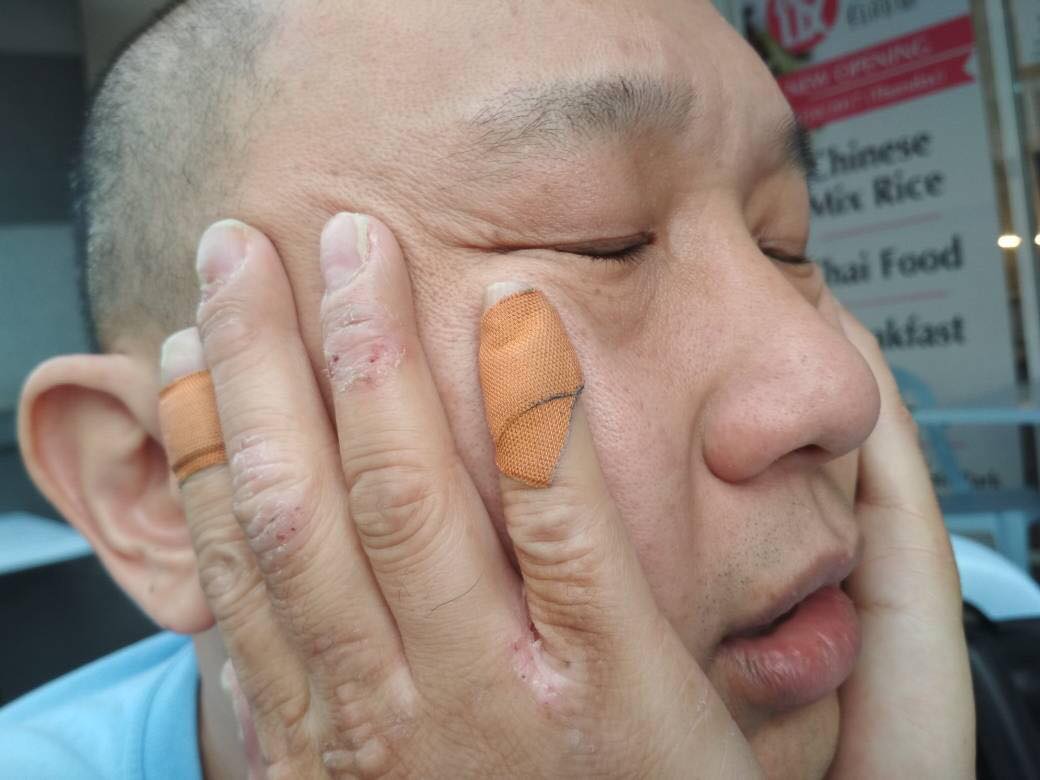
For him, honesty became the best policy, and telling people straight up that his condition wasn’t contagious or that they could shake his hand helped others understand the illness a little bit better. But for many patients, dealing with outsiders is certainly a big part of dealing with psoriasis itself and as a barber meeting people from all walks of life, Lex found that explaining his condition was something he had to do A LOT each time someone asked.
“I felt bad because of how many times I had to explain my condition each time someone asked. Eventually it came to a point where I just decided to go, “Oh. Sensitive lah my skin“. Easy. One line.” – Lex
Still, the both of them prefer telling people about their condition and don’t mind opening up to those who want to know more. For Raja though, this was slightly more difficult due to his experiences back during his school and college days.
“When I went to college where I had to sleep with dorm mates, they would point out, “Eh dude, you’re leaving behind white skin when you sleep“. That’s why I try to avoid sharing rooms with people, even now.” – Raja

Because he rents, Raja actively looks for places with fewer rooms so he can avoid the stress of having to interact with people. And at times when he does have roommates, Raja avoids common spaces such as living rooms so that he doesn’t feel like he’s kacau-ing others with his condition. At one point, he even rented an entire place to himself, which he told us was probably good for his anxiety levels but terrible for his wallet and his FOMO syndrome.
Another thing we also asked was…
So… um… what’s dating like?

From the global psoriasis survey that was done, 84% of participants reported having been discriminated or humiliated because of their condition. Depending on which part of the body the disease manifests itself, patients can deal with embarrassment and self-esteem issues especially if the lesions are on visible areas like their arms or their faces.
Our 3 interviewees have had varying experiences. Lex is now engaged, with his wedding coming up in a couple months. Woei Hern on the other hand is now married with two kids, having been lucky enough to find a wife who understood his condition.
“”I guess my wife loved me for who I really am!” – Woei Hern
As for Raja, he admits being resigned to not date until the right person comes along one way or another.
“If it comes, it comes. If it doesn’t, then it is what it is.” – Raja

Understandably, social situations can be a bit difficult. But lest we forget, psoriasis isn’t just an anxiety-inducing social embarrassment. Because as far as skin diseases go…
It doesn’t just itch… It hurts real bad too
“At night, when you’re trying to not think about the pain, the itch can suddenly appear. And when you scratch and scratch and scratch, it starts to bleed. Then you won’t notice what you’ve done until the next morning when you find all your bedsheets covered in blood.” – Raja
For most of us, tahan-ing a pretty painful pimple for a few days can already be too much. But because psoriasis comes with a life sentence, it means these guys are stuck with the pain FOREVER. According to Raja, the buildup of plaque psoriasis on his skin can result in hard scales which break while he sleeps, forming shards that stab into him.
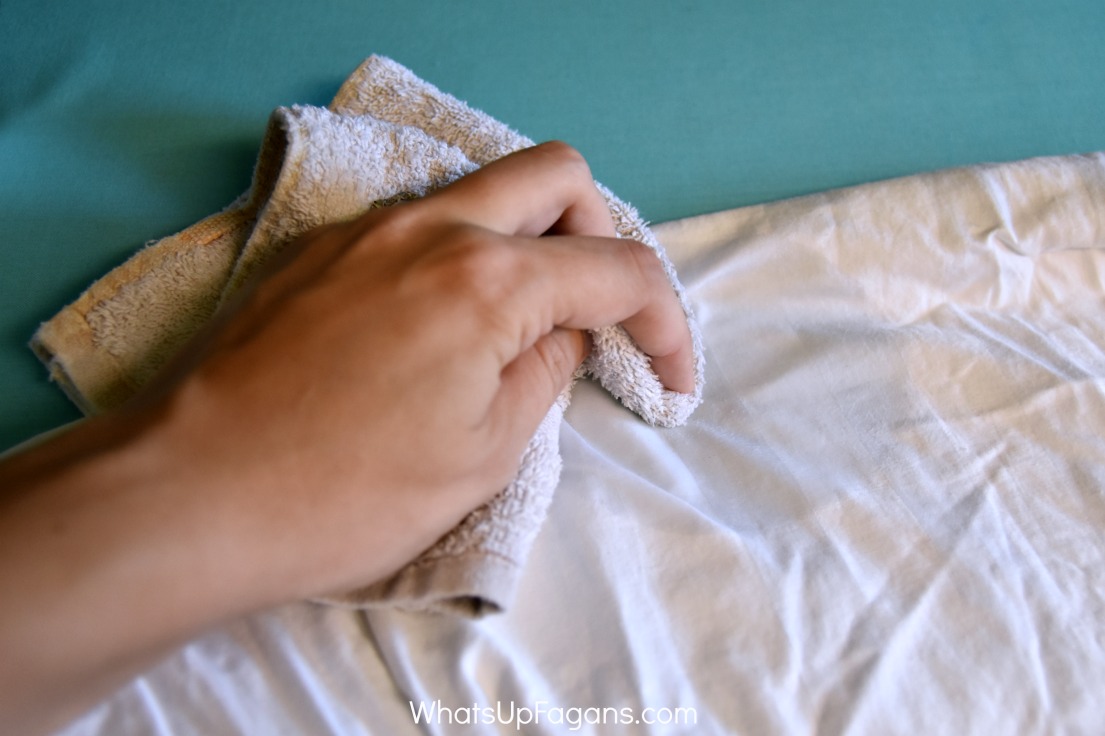
Apparently, this happens a lot to psoriasis patients, with some getting special stain resistant bed sheets to avoid the hassles of cleaning bloody blankets the next day. But for Woei Hern, the worst part about having the psoriasis lesions on his hands comes first thing after he wakes up and starts his day. Because of the open wounds on his hands from scratching the night before, morning showers are an extremely painful ordeal for Woei Hern.
Meanwhile for Lex, the flare ups come from working in a salon (stress and chemicals …aiyo) along with the worsening of his skin, to the point where he quit work for 3 months to recover.
“My skin was so dry that it would crack with just a little movement. The flare ups were happening every day and every time I woke up, it would be like it was snowing everywhere.” – Lex
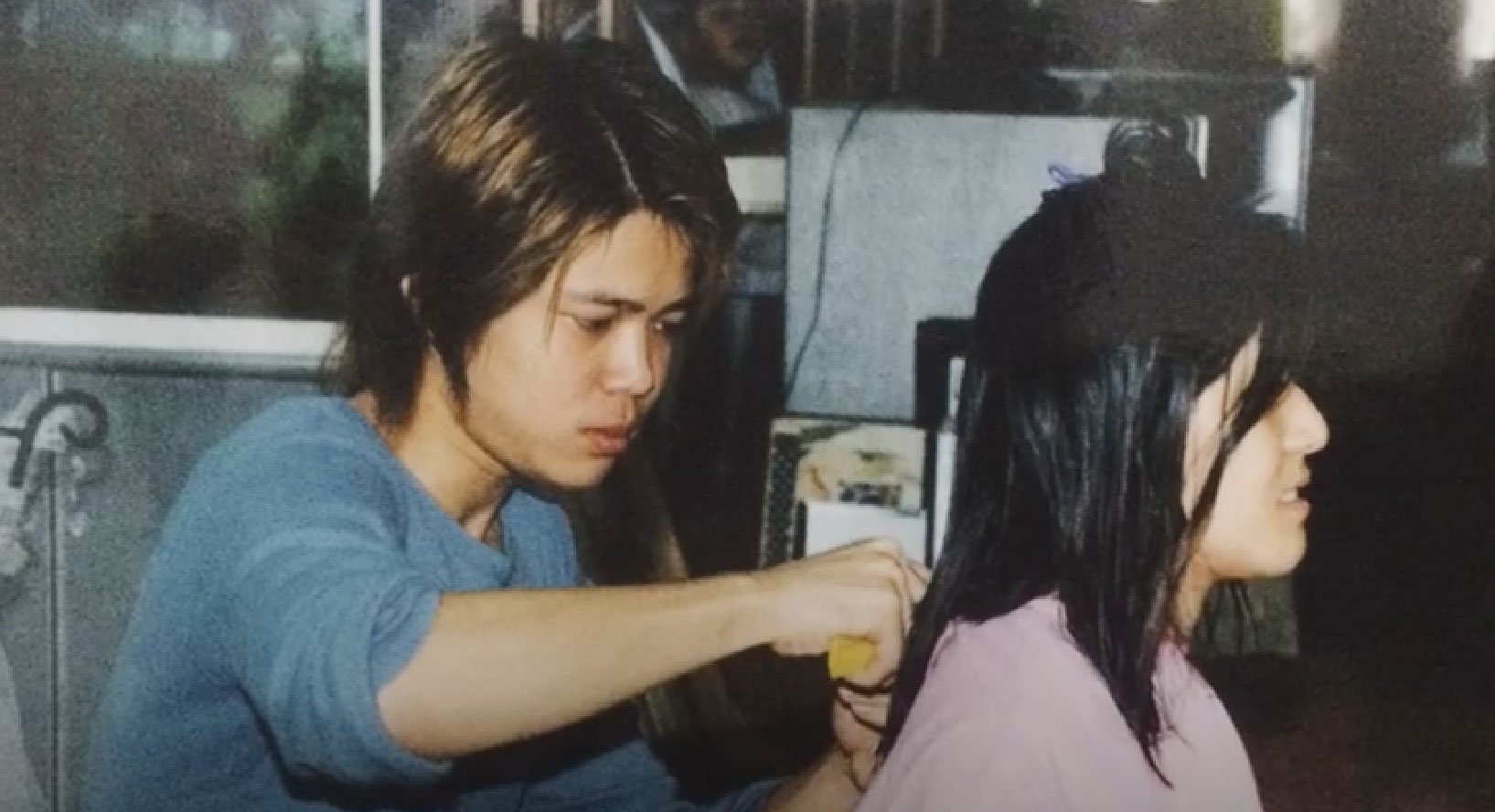
There might not be a cure… but there ARE solutions
“Basically, my rule of thumb is I’ll try anything once to see if it works.” – Woei Hern
From traditional remedies to homeopathic treatments, Woei Hern has given most things a try to alleviate his symptoms. At one point, he used antihistamines to suppress his flare-ups, although they left him drowsy and sedated. Steroid addiction was another struggle because it worked wonders making the symptoms go away, but every time it wore off, the psoriasis would come back even worse. However, it’s very important to get the right dosage from your doctor, especially since Raja told us that the wrong dosage could have an impact on his kidneys.
Image from Pinterest.
The good news is, treatment solutions for psoriasis are getting more advanced, and are beginning to provide long-term solutions with fewer side effects. Already there are products that claim to provide ways to clear skin, with an estimated 80% of patients with moderate-to-severe psoriasis experiencing clear skin after using the treatment. For those suffering with the condition, you can ask your doctor about latest ways to achieve clear skin safely, as the Ask4Clear campaign is getting people to do.
“I realised that I had psoriasis about 12 years ago. It was emotionally draining, being stared at and being afraid of my customers thinking that I’m contagious. But the important thing is to not give up hope, there is a right treatment for you out there and it’s fundamental to realise that your skin doesn’t define you. Don’t let psoriasis hold you back from doing great things.” – Lex
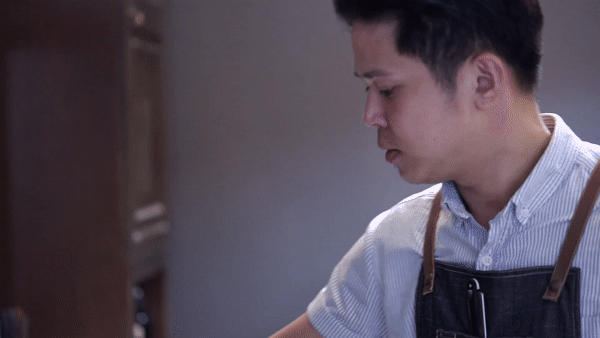
But of course, these solutions are only skin-deep. For psoriasis sufferers, human interactions are the deeper problem.
“I never had anyone make fun of me, but I had friends who had full-psoriasis, and the term people used for them was terrible – “fish skin”.” – Woei Hern
In general, psoriasis patients do understand that their appearance might be shocking, but it’s probably best to just get used to it, and of course, to avoid giving too much advice unless you’ve got the same condition even if you mean well 🙂
- 8.6KShares
- Facebook8.4K
- Twitter17
- LinkedIn23
- Email32
- WhatsApp107




